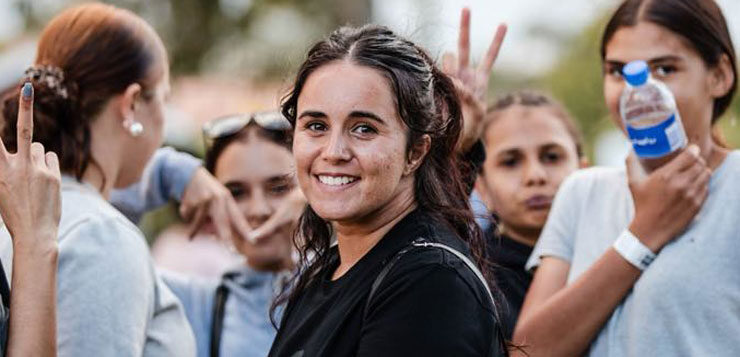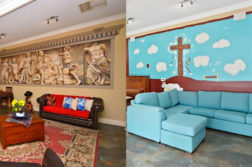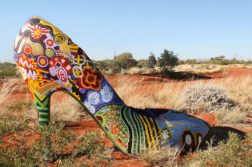On Saturday, NSW goes to the polls to re-elect councillors at more than 120 local councils around the state. One in particular is worth watching, writes Chris Graham.
It’s a personal theory, but I’ve found that if you want to talk about world-class racism in a small Australian country town, it’s always a good idea to lighten the mood first with a joke. So here goes.
A young Aboriginal woman walks into a bar in a regional town infamous for its racism, and asks locals to consider chipping in to fund the anniversary commemorations of a major event that occurred 60 years ago, and drew international headlines.
Back then, a busload of long-haired hippies from the city arrived in town to challenge authorities over their Apartheid laws, which banned Aboriginal people from the local swimming pool.
Their visit wasn’t appreciated. Neither was the request by the black woman for funding to commemorate the event, who was told to piss off.
That’s it, that’s the joke.
In my defence, I never promised it would be funny.
Also, you’ve probably worked out by now that the best humour is based on real life, and this story actually happened earlier this year. With some slight embellishments on my part.
The young Aboriginal woman wasn’t told to piss off; and she didn’t walk into a bar… she was sitting in a meeting as a democratically elected representative on the local council.
Her name is Mekayla Cochrane. In 2021 she became the first Gomeroi woman elected to her local council, and one of the youngest women ever elected to local government in the history of NSW. In June this year, as she and her colleagues were preparing for the new financial year, Cr Cochrane advocated fora budget to commemorate the 60thanniversary of the arrival of the ‘Freedom Rides’, the iconic protest movement led by renowned Aboriginal activist Charlie Perkins.
The town, of course, is Moree, a large rural community in the north west of NSW famous for its wealth and cotton… and infamous for its racism. And when I say ‘infamous’, I mean INFAMOUS. In all caps, italicized, with bold type. Even ChatGPT agrees:
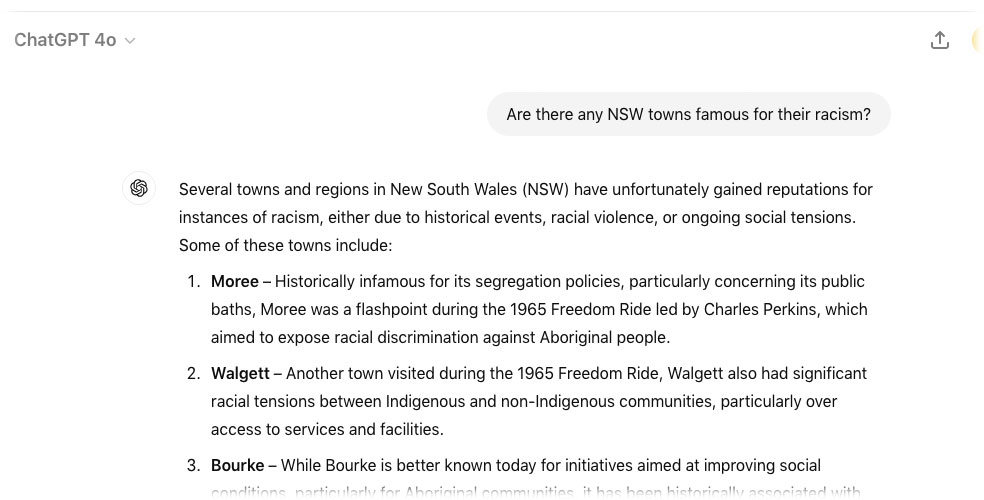
But don’t just take artificial intelligence’s word for it, here’s a screencap of a story from February 26, 1965, that appeared in The New York Times, describing the arrival of the Freedom Rides in Moree.
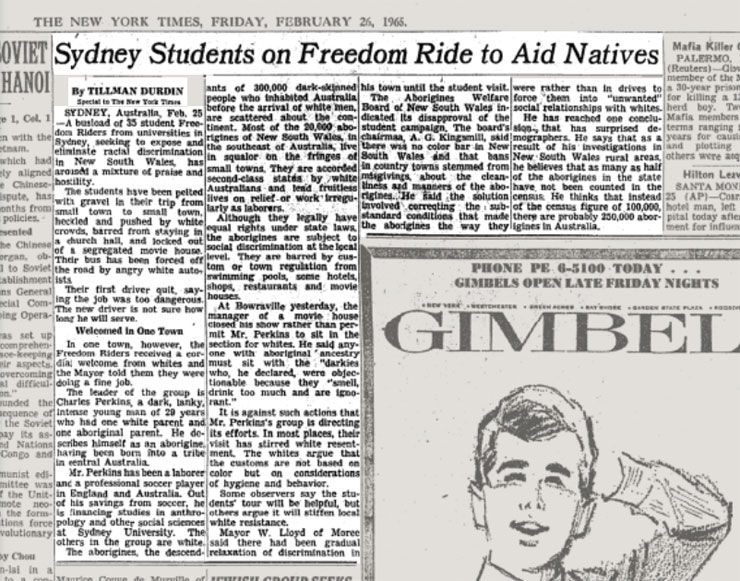
“Some observers say the students’ tour will be helpful, but others argue it will stiffen local white resistance. Mayor W Lloyd of Moree said there had been gradual relaxation of discrimination in his town until the student visit.”
Which is complete horseshit, of course. Rather than discrimination being ‘progressively relaxed in Moree’, it had been ratcheted up year-on-year for decades. It wasn’t until the Freedom Rides arrived – with all the national and international embarrassment and condemnation that that brought with it – that Moree Shire Council finally relented and rescinded the bylaws passed a decade earlier which prohibited Aboriginal people from swimming at the Moree Baths.
Thanks to the Freedom Rides, Aboriginal people were even allowed into some bars, which is how The New York Times came to focus on Moree’s racism once again in 1982, after Ronald ‘Cheeky’ McIntosh was shot dead by two white locals, after a brawl at the Imperial Hotel.
Fast forward to 2024, and it’s worth hearing what our most recent Mayor of Moree, Mark Johnson has to say about race relations in Australia’s ‘Deep South in the North West’.
“It gives me great pleasure to present Moree Plains Shire Council Draft Reconciliation Action Plan (RAP) for 2023-2026,” writes Johnson earlier this year.
“Council’s previous RAP covered the period 2014-2017 so an update has been long overdue and I am pleased we have now reviewed, updated and recommitted to this vital and most relevant document for our Council.”
The key word here is ‘draft’, because, leaving aside the fact that a NSW town known globally for its racism hasn’t had an active RAP for almost a decade, the plan they’ve crafted to cover the 2023-2026 period still hasn’t been adopted by the Council, even though they’re almost halfway through the period it’s supposed to cover.
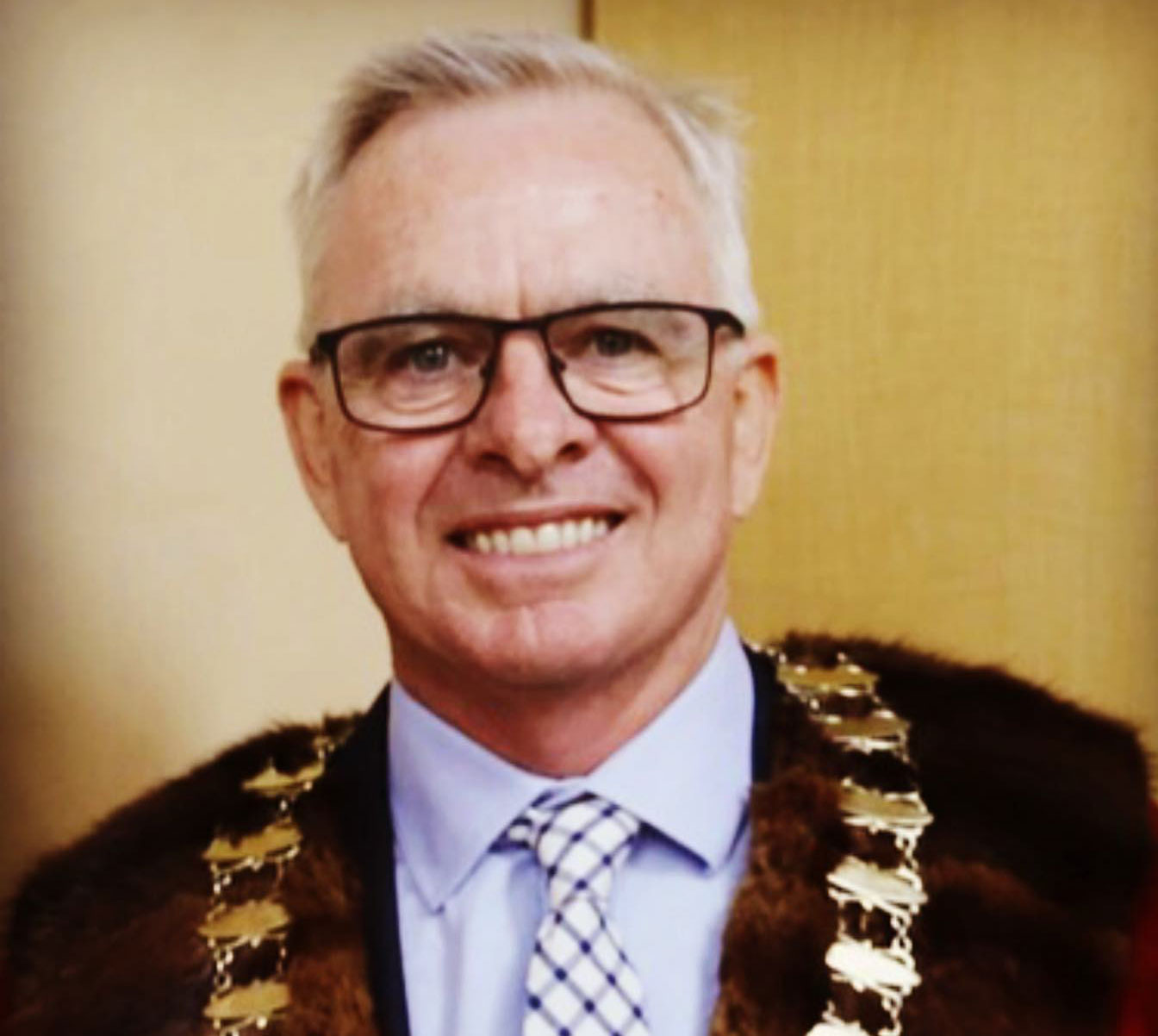
This is the sort of comedy that writes itself. It’s even ‘funnier’ (a term I’m obviously using loosely) when you consider that Moree residents, in particular Mark Johnson, are well aware of how the town is widely perceived. Indeed, that’s what got Cr Johnson into local politics in the first place.
In a recent interview with the New England Times on his retirement from office (Johnson is not seeking re-election this weekend, after serving two years), the former Mayor explained his motivation for running for Council:
“I pursued it because all of my life, I’ve grown tired of the poor reputation that our town has in terms of a place to come and raise your family and operate a business. I wanted to lift the profile with my council about Moree as a destination, as an opportunity, and just to try and improve that reputation to the wider world, if you like.”
I don’t like. But we’ll come back to Mark….
Back to Mekayla
Unlike Mayor Johnson, Cr Mekayla Cochrane got into local politics to improve the town, rather than the town’s reputation. There’s an important difference. In particular, Cr Cochrane has focused on improving service delivery to Aboriginal people.
“I was a Council employee before I ran,” says Cr Cochrane. “So I saw how they were servicing the Aboriginal community, and it wasn’t great.
“I’ll honestly say, it was two white workers at council who said someone like me needs to run. That sat with me for a while, but I didn’t do my nomination until the day before the cut off.
“I work well under pressure, apparently.”
Also unlike Mayor Johnson, Cr Mekayla Cochrane is seeking re-election this weekend, even though her two years and 10 months in the job has cost her and her family more than she bargained for.
“My experience as a Councillor hasn’t been great. My safety and protection concerns with my little one (she has an eight-year-old son) are an issue for me. I’m no longer a private person – I’m a public person – and I have lots of things questioned, like my Aboriginality.
“I think I’m very resilient, but I don’t think you should have to be to serve in that role.
“I’m a pretty small, quiet person. I think my persona was used against me. But I feel like I’m a different person and not necessarily for the better after the experience.”
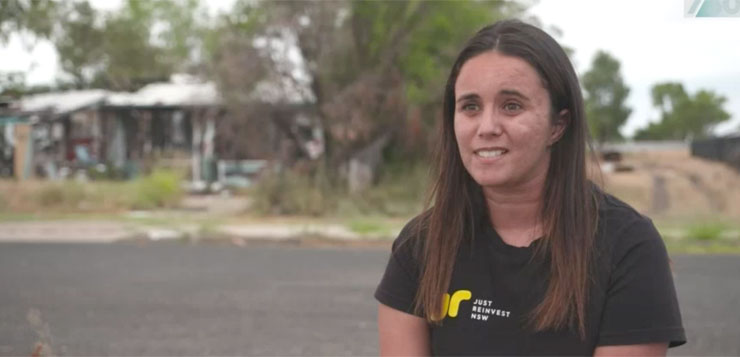
Apart from the public abuse she’s had to endure as an elected official in a small town, Cr Cochrane says one of the other taxing parts of the job is knowing that as the only Aboriginal woman on the Council – and one of only a couple of Aboriginal councillors in the 100-plus year history of Moree – her views on most things are unlikely to sway her colleagues.
“I think there’s some genuine goodwill on the council. Most of the people at the table were in it for the right reasons. But at the same time, I think there’s a real fear of upsetting or making white people feel uncomfortable.
Which begs the obvious question, why would Cr Cochrane pursue another four years on Moree Plains Shire Council?
“Well, I know the ropes now, and I feel like two years is just touching the surface of what I could achieve.
“I got advice from a very experienced councillor, who told me you have to do at least two terms to have an impact.
“My little one is around for four more years in primary school, and I want to time it around my family, so I want to commit to one more term.”
A bigger vision
One person in politics who does appear to have listened to Cr Cochrane is the NSW Premier, Chris Minns.
Independent of Moree Shire, Cr Cochrane also serves on a governance group within the Premier’s Department. Her biggest area of interest and expertise – and one of the chief reasons the Premier’s Department courted her – is crime.
“Criminal justice is my passion,” she says. “I want accountability, I want community-led solutions. I want the responses to crime to sit within the community. And especially I want them to help close the gap.”
Cr Cochrane’s day job is with Just Reinvest NSW, a widely respected not-for-profit focussed on reducing incarceration rates through ‘justice reinvestment’, the process of redirecting funding away from prisons and into communities that have high rates of contact with the legal system.
Earlier this year, in a panic, NSW parliament rushed through changes to youth bail laws which were described by more than 50 legal and human rights groups as ‘flying in the face of long-established evidence’, and akin to a “declaration of war”.
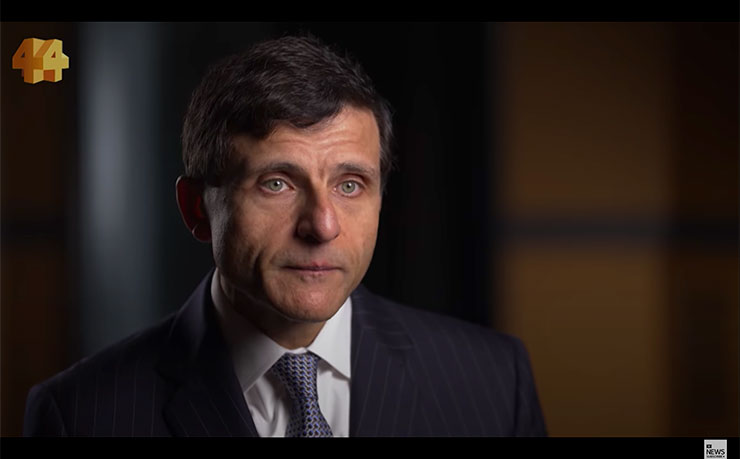
Arthur Moses SC, one of the nation’s most respected legal minds and a former president of the NSW Bar Association and the Law Council of Australia, told the ABC at the time:
“I often wonder whether politicians who rush in laws concerning youth justice have visited a juvenile detention centre and spent time with children listening to them, rather than demonising them.
“Many have been abused or neglected during their short lives. Many have cognitive impairments. They need help and the support of society.
“The bail changes will make it harder for children to get bail than adults, and result in an increase of children in custody. That is a fact.
“It is regrettable that the NSW Parliament literally tripped over themselves to rush in these bail laws within days because of adverse publicity with no proper consideration.”
Cr Cochrane puts it even more bluntly: “It was a stunt.” But she also says that she believes there has been some growth from the Premier on the issue.
“[After the stunt], the NSW Government injected a whole bunch of money into the Moree community. It’s short-term money, but it’s for bail accommodation and after hours activities for young people.
“So the Premier seems to be changing his mind about his response to crime.”
Home matters
Bail laws have special relevance for the Moree community, where crime rates across all categories are significantly higher than the state average. Juvenile crime in particular is high, although not in the way most people would expect.
“In Moree, and the police will quote you this as well, it’s known to be 10 to 15 young people who commit most of the offences. So I think punishing all young people for the actions of such a small cohort is obviously not the solution,” says Cr Cochrane.
Cr Cochrane says that more jail for more people isn’t the solution either.
“Incarceration doesn’t fix the problems. If people are in trouble within themselves, they’re locked up and when they come out of jail, they do it all over again.
“The crime is just a symptom of the person. But there’s no intervention into why the person has done the crime in the first place.
“I want everyone to feel safe in their homes and their community. People think I don’t, because I don’t want more people locked up. But I do want community safety. I want town safety. But more incarceration isn’t how you get it. That’s just a cycle. More trauma, more harm.
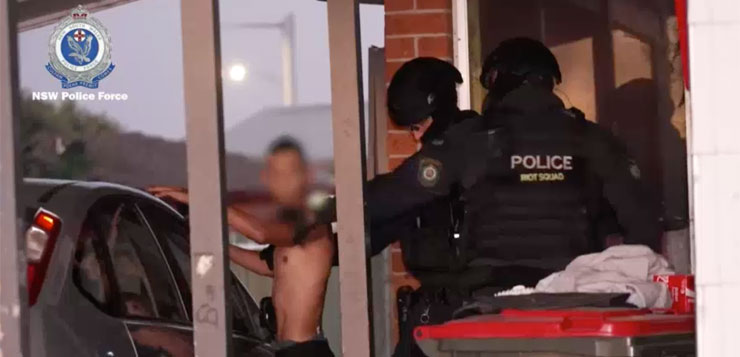
“And I want long-term outcomes, rather than the short-term band-aid fixes that we are doing.”
Nowhere is that more apparent, says Cr Cochrane, than in the way governments, and even local councils, engage with youth.
“ In the past, the solution for whitefellas [local government]has always been to put blackfellas away where they don’t have to look at them. I feel like that’s what they do now with young fullas – they put them away.
“Aboriginal young people are not dealt with appropriately in regards to crime. They’re taking them off country. They’re excluding them from their families. They’re isolating them after some of them are already isolated in their homes. It doesn’t fix anything.
“I think we just keep trying to harm young people. It’s all just a ‘punishment’ response.
“When do we get to the healing bit? And how do we actually fix families?”
No magic wands, but what if?
Securing a second term won’t be easy for Cr Cochrane. Over the weekend, there will be three other Aboriginal people contesting the nine available seats, and given Moree’s past reluctance to give any power to black faces, that’s likely to split the vote four ways.
Cr Cochrane, however, remains upbeat. If she doesn’t get back on Council, she’ll continue her advocacy with the Premier’s department, and she’ll keep working in the justice space through Just Reinvest NSW. She also plans to support a new Youth Council if Moree refuses.
“I really want to build up governance within the Aboriginal community. I want to give our community power back, really hand it over with my power as a councillor. I don’t think I’ll have any chance of doing that if I’m not sitting at that table.
“Government LOVES control, but I think we need someone at the table to say ‘We “don’t need this much control.’
“I’d also like to see more Aboriginal people in senior leadership positions inside the Council, but also outside it, in the community.”
But what would Cr Cochrane do if she had a magic wand?
“I would want the same power that whitefellas have, to be given to Aboriginal people. I don’t know about a separate council for Aboriginal people – I need to think that through more deeply – but I think we should be able to make decisions for our own lives, for our own communities.
“It’s not to divide us further, but we’re the experts in our lives and for a long time the power’s been taken away. It’s just the power over our lives. We’ve been told what to do for so long.
“With the structure we have now, we have to be voted in by a majority of the white community.
“And it’s doable, because I’ve done it. But it’s not a fair system of representation.”
And now for something completely different
Cr Cochrane acknowledges that the longer-term solutions for Aboriginal people in towns like Moree lie at least in part within individual families. But she also believes Moree must start to come to grips with its past if it’s to improve its future.
“Local government has a lot of power. And it was local government that really led the way in the discrimination and the racism,” she says. “And it wasn’t that long ago.
“It was only just before my mum’s generation that Aboriginal people were allowed off the mission. People are still alive today who were not allowed in the pools.”
Which brings us neatly back to Cr Cochrane’s push to have Moree properly recognise the 60th anniversary of the Freedom Rides, surely a crucial first step towards reconciling the community’s dark past.
After failing in June to excite any interest in funding, Cr Cochrane decided to have another crack by putting up a ‘Notice of Motion’ in August. She aimed low, seeking a measly $1,000, but figured it was better than nothing. Even that met some opposition from Councillors, not to mention the bureaucratic brick wall for which local government is often famous.
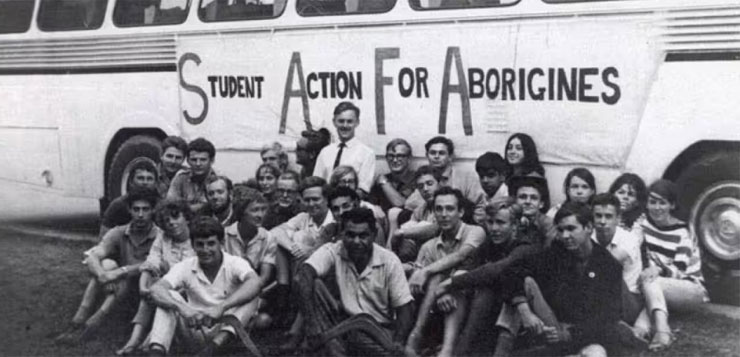
“I asked for the Freedom Rides anniversary to be a budget item in our operational plan. It didn’t even get a second look.
“And so I put it back up as a Notice of Motion one month later, and they said ‘You should have asked for this in the budget.’”
Even so, after some debate, and with the help of the Deputy Mayor Susannah Pearse, Cr Cochrane was eventually able to extract a whopping $5,000. Which sounds like a lot, but that has to organise commemorative activities to mark an event that reverberated around the world.
In financial terms, it’s not even the bare minimum.
But wait, there’s more. Cr Cochrane’s ‘Notice of Motion’ was actually a two-parter: in addition to asking for very modest funding, she also suggested that the Council consider acknowledging the harm its bylaws caused to Aboriginal people, and – more sensitive readers better be sitting down for this – for the Council to consider apologising.
Yes… the ‘A’ word. White Australia’s ‘N-word’, but apparently 10 times more triggering.
Needless to say, part two of Cr Cochrane’s motion didn’t get up, although legend has it that they’re still trying to clean the synapses off the walls of the Moree Plains Shire Council chambers, after several heads exploded.
In completely unrelated news, in May – one month before Cr Cochrane first sought to secure a budget to commemorate the Freedom Rides and was ignored – the Moree Plains Shire Council “excitedly” announced that work would soon commence on a new 50-metre pool at the Artesian Baths, ground zero for Moree’s world-renowned racism.
A media statement from Mayor Mark Johnson “excitedly acknowledged his gratitude to the Federal Government and in particular Minister of Infrastructure Catherine King stating, ‘This announcement is a game changer, we have been working hard to deliver this project and to receive this significant amount of funding, we can confidently work on the continuation of the project’.
Mayor Johnson’s “game changer” will cost taxpayers almost $10 million.
Best joke so far.
* The original ‘New Matilda Fantastical Historical Political Outback Tour’ series has visited Moree before, back in 2019. Indeed, it was one of the first features we published on the road. Notably, the story was entitled ‘Apartheid Fun Park – How We Remember ‘Official Segregation’ In Australia’, and focussed on the Moree Baths, and the towns stunning history of racism. You can see all of the Outback Tour stories in our archives here, and stayed tuned for more Outback Tour 2.0 stories soon.
** STORY UPDATE: Mekayla Cochrane fell short of the number of votes required to get onto Moree Plains Shire Council. But her four years in the job inspired a record four Aboriginal candidates to seek election this year, and two of them – Wayne Tighe and Fred McGrady – won office. That’s twice the previous record (which previously stood at one). Indeed, Tighe’s share of the vote was high enough for him to run second out of a possible nine.
Donate To New Matilda
New Matilda is a small, independent media outlet. We survive through reader contributions, and never losing a lawsuit. If you got something from this article, giving something back helps us to continue speaking truth to power. Every little bit counts.

